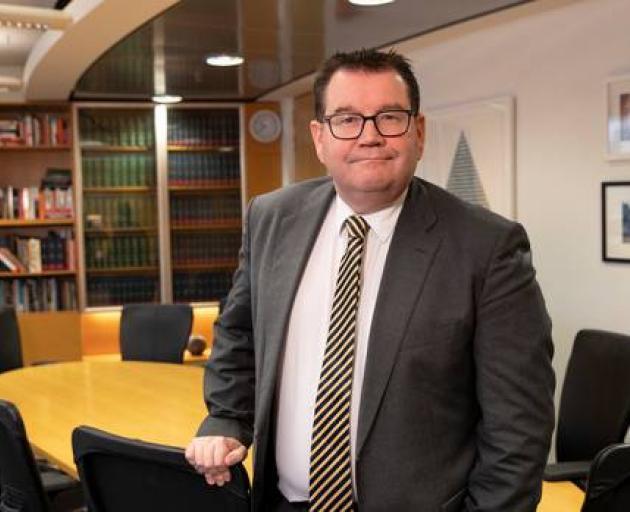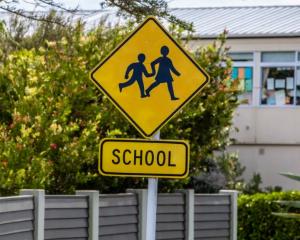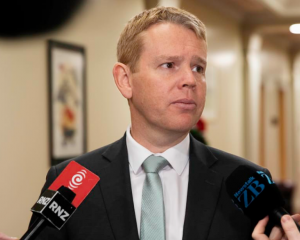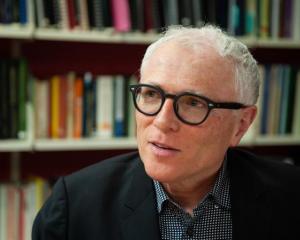Job losses due to Covid-19 may already be matching those seen in the Global Financial Crisis and economists warn we may be at the start of a "second wave" of redundancies, as the reality of the new economy dawns.
And with many of the current job losses affecting lower-paid workers, the next wave is expected to creep "higher up the food chain".
Since the start of Covid-19 restrictions around 43,000 people have signed up for the job seeker benefit, pointing to a sharp upturn in job losses.
The real number of people out of work may be higher because some people are not entitled to a benefit because their partner is in work.
A New Zealand Herald analysis shows more than 14,000 people have lost their jobs from several major New Zealand companies.
There have been a number of high profile announcements from major companies about widespread job losses, with 3500 at Air New Zealand, 1000 at Fletcher Building, more than 910 at Millennium & Copthorne Hotels. Auckland Council cut 1100 temporary and contractor staff.

Figures released by Statistics New Zealand today show the number of jobs fell by a record 37,000 or 1.7 per cent in April alone, the biggest monthly fall in percentage terms in 20 years, when the measurement was established.
In recent weeks, the rate at which people have been signing up for job seeker has been slowing, with an increase of around 1600 in the week to May 15, the latest numbers available.
Last Friday, Finance Minister Grant Robertson highlighted this as among a number of signs that the economy was improving, with traffic levels recovering and retail spending bouncing back from the plunge seen during lockdown.
On the increase in benefits "certainly the rate of increase is plateauing," Robertson told reporters.
"The confidence that businesses are taking from being in [Covid alert] level two, for the most part being able to trade … perhaps not at the level they were, is giving businesses confidence and we'll want to work with them to build that."

'A second wave'
Brad Olsen, senior economist at Infometrics has been monitoring announced job losses reported by the media. While the table he is building is only a fraction of the overall increase, it suggested that the past week has seen the biggest cuts since lockdown began.
Olsen said there was a large spike in job losses at the start of the lockdown. Businesses were now emerging from the lockdown and seeing exactly how the restrictions had impacted demand.
"Now they're turning to 'what does the future look like, they've discovered that there's not as much money coming in and they're observing there's not as much business as there was [before Covid-19] and I have to trim my workforce to meet that change.
"I wonder if the announcements we're seeing are the start of a second wave as we are getting to the end of the wage subsidy. Business are now quite clearly signalling that change is now coming."
The announcements would likely take some time to show up in the job seeker figures published by the Ministry of Social Development.
"It's not like when Fletcher's says they're making 1000 people redundant that the next day they've got no job to come to," Olsen said.

Already worse than the GFC
Shamubeel Eaqub, an economist at Sense Partners, believed New Zealand was in the second wave, as the reality of post-lockdown was setting in.
"We're just at the beginning" of the second wave. That's what we're seeing with all these high profile announcements. That doesn't count the SMEs [small and medium sized enterprises] where there's jobs going, but it just doesn't make the news."
Eaqub said with approximately 45,000 job losses, the hit from Covid-19 on the labour market was "already worse than the GFC" while two further waves of unemployment could see job losses climb towards 200,000.
Job losses were now no longer just coming in companies most directly impacted by the lockdown and the end of tourism.
"It's spreading now, out to virtually every sector in the economy, whether it's manufacturing or wholesale or logistics or services," Eaqub said.
Companies were cutting back on what they were spending while bonuses were likely to be cut if not eliminated. This meant that while people may not be losing their jobs, changes would have an effect on others.
"There is less money for people to spend," Eaqub said. Reducing incomes meant discretionary spending was lower, which could hit spending on durable goods. Restaurants would be hit "harder than normal".
Amy Adams, the National MP and former Cabinet Minister who has been convinced not to retire at the election as a result of a change in leadership and the offer of a new portfolio on the Covid-19 response predicted the worst period for the job market, and job losses, was ahead.
Adams spent Wednesday morning speaking to business owners and business representatives.
"What I'm hearing consistently is there's a bit of a repressed demand that's happening at the moment," which had seen activity bounce back after lockdown.
"But they're all saying they're incredibly nervous because the forward order book, some say it's 'dead', some say 'flat', some say 'well back', depending on what industry you're talking to. Businesses make decisions about staff and jobs and things with a view forward."
The wage subsidy was coming to an end for many, meaning companies were warning of job losses, while companies which might ordinarily be expanding were "just getting really nervous" and so may delay plans.
"So you have a double whammy. There's more people losing their jobs and there's fewer jobs being created," Adams said.
"I don't want to be a doomsayer about it, because this is people's livelihoods, and I'd love to be able to say to them, we're on the way up. We're simply not."

'Further up the food chain'
Robertson has declined to say whether he believes the forecasts are realistic, saying simply that forecasting is always difficult but in the current conditions is more an art than a science.
Dr John McDermott, the former head of economics at the Reserve Bank who is now the executive at leading economics consultancy Motu, said after previous economic downturns, the labour market tended to be one of the slowest to recover.
If Treasury's forecasts proved to be correct "it would be unprecedented," McDermott said.
Companies did not tend to take the step of shedding staff lightly and when they did, were unlikely to hire when the experience was fresh in their minds.
"If you've gone through the step of laying off staff, you don't change your mind in six months. It will be years."
As well as jobs disappearing, this would make it hard for people trying to find new ones, which was likely to hit young and inexperienced people the hardest.
"For school leavers, and those with university degrees, it could be a tough ask to get new jobs."Although the profile of those who have lost their jobs is not accurately known, the job losses in the tourism and hospitality sectors suggest that, broadly, the jobs were likely to be lower paid and probably affecting generally younger workers.
Independent economist Cameron Bagrie said that as the fallout continued the second and third waves would go "further up the food chain".
Companies which had cut off workers at the coal face would restructure executive teams. Retail would be affected as companies hastened a move to focus on online sales, which would have implications for commercial property companies. It could also accelerate bank branch closures.
Recent downturns such as the Asian Crisis of the 1990s and the GFC suggested that the number of transactions in the housing market could fall by around a quarter.
"That has implications not only in the real estate industry, it has implications in banking, in the legal fraternity and elsewhere."
Treasury has forecast that while unemployment will rise sharply to 9.8 per cent later this year, that job creation would bounce back sharply in the following quarters.
Its statements suggest that job creation will be so strong that unemployment could drop down to 4.2 per cent within two years, a fact Robertson's office highlighted in the Budget.
Since then, Treasury officials avoided an appearance at the Epidemic Response Select Committee which was chaired by former National Party leader Simon Bridges.
Robertson has declined to say whether he believes the forecasts are realistic, saying simply that forecasting is always difficult but in the current conditions is more an art than a science.
Dr John McDermott, the former head of economics at the Reserve Bank who is now the executive at leading economics consultancy Motu, said after previous economic downturns, the labour market tended to be one of the slowest to recover.
If Treasury's forecasts proved to be correct "it would be unprecedented," McDermott said.
Companies did not tend to take the step of shedding staff lightly and when they did, were unlikely to hire when the experience was fresh in their minds.
"If you've gone through the step of laying off staff, you don't change your mind in six months. It will be years."
As well as jobs disappearing, this would make it hard for people trying to find new ones, which was likely to hit young and inexperienced people the hardest.
"For school leavers, and those with university degrees, it could be a tough ask to get new jobs."

'We have a lot to offer' - redundant pilot
Pilot Mike Kenyon says the saddest part about losing his dream job was not knowing his last flight in early March would become exactly that.
The 35-year-old was made redundant by Virgin Australia on April 3.
He had not been in a plane since.
Not knowing when airlines would start taking to the skies again only added to Kenyon's distress.
Living in Taupō, where his wife was employed, Kenyon said there were only a small number of jobs around and most were tourism-related.
"The number of jobs coming up isn't high and tend to be quite specialised: medical stuff, sciences, electricians.
"There have been a few I've been able to apply for but I haven't managed to nail one yet. It's just a case of continuing to cast a wide net and seeing who might be interested."
In 2003, after finishing high school he started training at Ardmore in early January before he had even turned 18.
He was then a flight instructor there before taking a job with Eagle Airways, the turbo-prop operation of Air New Zealand, in 2008.
Three years later he was offered a job at Pacific Blue Airlines, which later rolled into Virgin Australia, where he had been for the past nine years.
Kenyon has helped train new first officers since midway through 2019.
Flying Boeing 737-800 aircraft, Kenyon flew between the Pacific Islands, Australia and New Zealand, and flew transtasman.
While his professional career was a life in the sky, Kenyon said out-of-work pilots had plenty to offer employers.
At the forefront was leadership, they were also great communicators and people who were constantly learning and adapting.
"Pilots have a lot to offer in regards to our transferable skills," he said. "We don't just sit there, fly aeroplanes and press buttons, here's a hell of a lot more to it.
"If someone was prepared to take five minutes, give it some thought and talk to us, they would realise there's some potential here to do something different or really cool."

'No hard feelings' - redundant apprentice builder
He had moved to the Bay of Plenty to start the apprenticeship after working in Dunedin as a brewing and packaging technician at Emerson's Brewery.
"It's hard to describe … a little bit surreal," he said when explaining how he felt at the time.
"I can totally understand. If I were in my boss' position, I would have done the same thing so there are no hard feelings."
After the lockdown, Crosson and his wife Izzy started working in a kiwifruit packhouse near Katikati to pay the bills.
There were a number of other employees at the packhouse who had also lost their jobs amid the coronavirus lockdown and pandemic, Crosson said.
But the aspiring carpenter said he did not belong in a packhouse and he was keen to find another job in the industry soon, hopefully with his old boss.
However, Crosson was not opposed to trying another profession in the immediate and uncertain future.










